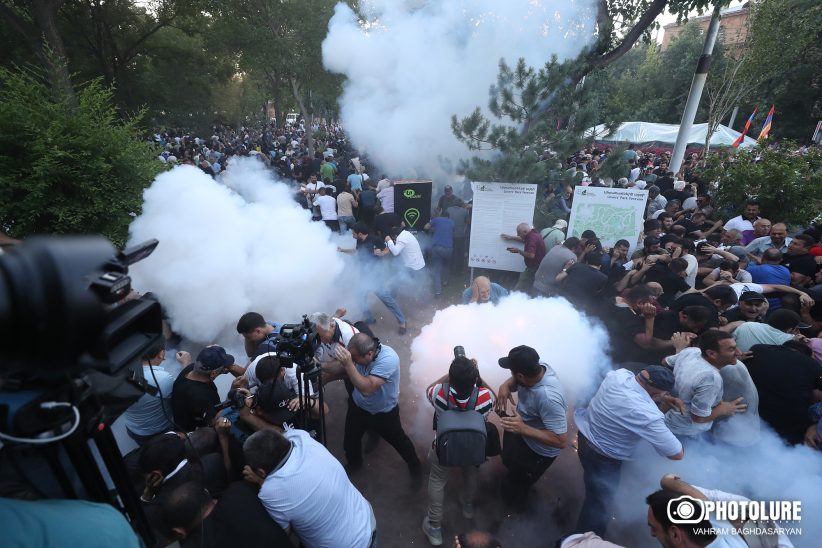The results of the observations carried out during the first quarter of 2023 are particularly alarming in terms of restrictions on freedom of information. Apart from the problems of obtaining information from state bodies, the facts of unjustified rejection of inquiries by media outlets and their representatives, or the fact of providing incomplete, blurred answers to them, a number of regressive initiatives of the authorities have been recorded, with which an attempt is made to create legal grounds for limiting the provision of official data.
Thus, as early as on December 22, 2022, the Ministry of Justice of the Republic of Armenia published the draft on making amendments to the Law of the Republic of Armenia “On the Legal Regime of Martial Law” on the e-draft.am website, and from the middle of January 2023 it was put up for discussion. This implies unjustified severe restrictions on access to the Internet and media activities under the conditions of that regime. The provisions related to them are not properly reasoned and are full of loopholes that allow arbitrariness.
Later, on March 1, the National Assembly adopted a comprehensive package of bills proposed by the RA Government, the basis of which was the new law “On State Secrets”. Among many other controversial changes, the package also included an addendum to the Law “On Freedom of Information”. According to it, inquiries for the provision of official data are subject to rejection if they contain “official information of limited distribution”. This wording, which gives rise to subjective decisions, also creates wide opportunities for arbitrariness, because any document in state bodies can fall under this.
Moreover, it has already become a common practice that these regressive bills, before they are published or put into circulation, are not properly discussed with specialized public institutions. Meanwhile, the tripartite Memorandum signed last year between journalistic NGOs, as well as representatives of legislative and executive authorities envisages an opposite approach and attitude.
Journalistic organizations made statements in relation to these processes, demanding public and expert (including international) discussions on problematic legislative initiatives, as well as to adhere to democratic values and the commitment to ensure the transparency of the Government activities. Meanwhile, such regressive legislative changes can negatively affect the accountability of the authorities to the public and contribute to the increase of corruption risks.
In this respect, the decrease in the ranking of Armenia according to the index of perception of corruption is noteworthy (details of this are presented in the “Media Activities Environment” section). This is comparable to the alarming statistics that the CPFE received during the first quarter when investigating violations of the right to receive and disseminate official information. In particular, 48 cases of such violations were recorded, which is 3 more than the data of the same period last year.
One of the peculiarities of the period under review is that no case of physical violence against media representatives was recorded during the quarter. However, compared to the same period last year, the number of various other pressures increased by 4, reaching 17.








